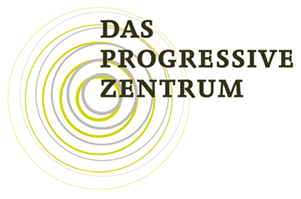
press room
Just Transition
European Strategic Autonomy
Education
Circular Economy
Progressive Yearbook 2022
Multilateralism
Conference on the Future of Europe
The European Union must assert itself as a full-fledged political entity with economic, social, cultural dimensions and take internal and external actions that are decided democratically by its own citizens, writes Maria João Rodrigues.
COVID-19
Taxation, Fiscal Rules and Climate Investment
Democracy and media
The President of the Foundation for European Progressive Studies, Maria João Rodrigues, argues that new aspirations for democracy and media are yet to be met
War in Ukraine
Digital tech and the COVID-19 pandemic
Justin Nogarede, FEPS Digital Policy Analyst, on the role of digital tech in the COVID-19 pandemic
Portuguese presidency of the European Union
Insights from FEPS President Maria João Rodrigues
The Generational impact of the coronavirus pandemic
The GENERA project, promoted by FEPS and the Felipe González Foundation, among others, contributes to bridge the gap between generations through seminars, studies and debates. The newest study in the frame of GENERA has been realized in order to continue building on this intergenerational dialogue. Based on a 1,000-survey response in Spain, the report sheds a light on the generational impact of the coronavirus pandemicfrom a multidimensional perspective, taking into account the experiences of young people and comparing them to those of the older generations.
Porto Social Summit
The President of the Foundation for European Progressive Studies, Maria João Rodrigues, has said the Porto Social Summit pushed forward by Portugal’s EU Presidency, can be a “historic moment” of Europe’s commitment to social rights.
FEPS Progressive Yearbook 2021
The Progressive Yearbook 2021 published by the Foundation for European Progressive Studies, presents studies on the key policy issues of this remarkable past year, including the emerging concept of the Health Union, the rule of law conundrum, pioneering policies like the Child Guarantee, and the added value of social democratic governments. If in 2020 the US elections were the most important ones, in 2021 it will be turn of the German Bundestag elections: this volume offers readings on both. Last but not least, predictions on key developments cover the economic recovery, events in Belarus, and the (so far ghost) conference on the future of Europe.
Call for a Child Union
Ahead of World Children’s Day 2020, over 300 figures from the world of politics, academia and civil society signed FEPS joint call demanding the rapid entry into force of the European Child Guarantee and a Next Generation EU funding that truly works for Europe’s next generations.
Joint letter on Commission’s Digital Services Act (DSA), and the Media and Audiovisual Action Plan (MAAP)
The People's Transition
On FEPS - TASC publication: The People's Transition. Community-led development for Climate Justice, by Sean Mc Cabe.The research study proposes a participative decision-making model, The People’s Transition, that views climate action as an enabler of local development, gives people and communities ownership of the transition to zero carbon societies, and enhances public support for a Just Transition by tackling inequality and raising standards of living through the delivery of climate solutions.
Call for a European Deal for Housing
The Recovery Plan and Green Deal cannot deliver economic and social justice without tackling the housing crisis. More than 100 progressive local, regional, and European leaders call for a European Deal for Housing. Initiative by PES Committee of the Regions. Call signed by FEPS president Maria João Rodrigues and FEPS Secretary General László Andor.
State of The Union 2020
Ursula von der Leyen’s maiden State of the European Union address ticked many boxes on solidarity, innovation and climate, but fell short on key issues including rule of law and global affairs, explains László Andor.
Inequality and the European Semester
The European Semester will play a key role in the implementation of the National Recovery Plans, to be submitted by mid-October. The reform of the Semester process was already in the pipeline but it is now essential to raise expectations and transform this coordination tool into a useful instrument able to grasp the changes affecting vital aspects of our daily life: health, education and work, writes Maria João Rodrigues and others.
Inequality and the top 10% in Europe
La Foundation for European Progressive Studies (FEPS) est, comme son nom l'indique, un think tank progressiste souhaitant incarner la famille socio-démocrate en Europe. Ses experts ont mené une étude sur les ménages appartenant au décile le plus élevé (les 10 % les plus favorisés) au Royaume-Uni, en Espagne, en Suède et en Irlande.
Euronews Interview to FEPS President Maria Joao Rodrigues on COVID Crisis and Recovery Plan
Klub Rádió Interview to FEPS president Maria Joao Rodrigues on Recovery Plan and Hungary
Progressive Economic Online Conferences
Op-ed on Hungary signed by FEPS President M.J.Rodrigues, Secretary General L. Andor and other founders/members CIVICO Europa
For the Europe of tomorrow: An Open Letter signed by FEPS president Maria Joao Rodrigues and Re-Imagine Europa Board members
Conférence sur l’avenir de l’Europe : ne ratons pas le rendez-vous démocratique et citoyen
The European Commission’s SURE initiative and euro area unemployment re-insurance
Europe’s half-empty sandwich
Coronavirus: sans un nouveau patriotisme européen, le déclin de l’Union sera inévitable
Op-ed by Maria Joao Rodrigues and Paul Magnette: Only a Roosevelt-style New Deal can rescue the EU
Article by FEPS Senior Policy Advisor Vassilis Ntousas in Open Access Government
Rewriting the Rules of the European Economy
Presentation of FEPS publication with Nobel Laureate Joseph Stiglitz
FEPS President in the press
Transatlantic trade negotiations should own up to their ambition
Pascal Lamy, Vice President of FEPS and former director-general of the World Trade Organisation and European Commissioner for Trade, published this tribune in the Financial Times about the negotiations on TTIP.
Interview to Christophe Sente, member of FEPS Scientific Council
François Hollande, the European Social Democrat
Could the Scottish vote awaken European democracy from its slumber?
EU leaders sideline gender parity at summit
The need for investment-led recovery for Europe
Giovanni Cozzi, economic advisor at the Foundation of Progressive European Studies (FEPS) and Stephany Griffith-Jones, financial markets director, Initiative Policy Dialogue (IPD), Columbia University argue in this article that more investment could lead to a significant decline in the government debt ratio of southern Europe.
Socialistes sénégalais et européens tentent d’exorciser leurs vieux démons
Ex-Treasury adviser: no real recovery - growth 'hype' masks crash risk
Entretien avec Ernst Stetter
Europe's economic crisis: some ideas for recovery and growth
Proposal to finance European investment, growth and jobs
Stephany Griffith-Jones, Matthias Kollatz-Ahnen and Lars Andersen
Based on an increase of lending by the EIB of almost 2% of EU GDP, the Foundation for European Progressive Studies (FEPS), the Initiative for Policy Dialogue (IPD) and the Economic Council of the Labour Movement (ECLM) have presented on 6th June an economic programme which expects to create more than half a million jobs in 2013, with accumulated total EU job increases of over 1.2 million by 2014. Here are the press coverage in European media.
Stiglitz tells Europolitics: «Austerity will surely fail»
Euros du village
Millennial Dialogue presentation in Spain
RFI
Brussels summit: No consensus on fiscal pact
Rencontre Merkel - Hollande : peuvent-ils briser la glace?
The Portuguese Government Solution: an inspiration for the European Left?
Bruxelles, ville compartimentée, ghetto mental
Survey: Europeans and brexit:
Opinion Poll done by FEPS and Fondation Jean Jaurès
On January 23, 2013, Britain’s Prime Minister David Cameron sensationally announced that the United Kingdom would be holding a referendum on its membership of the European Union. That announcement became reality last June 23, and, with almost 52% of the votes, the Leave camp won the day. The British have decided to separate from the European Union. The situation is unprecedented and the consequences uncertain. Across Europe, the media, experts and politicians of all persuasions are concerned about the potential fallout from this exit, whether from the economic, geopolitical or institutional point of view. And while Brexit is of great interest to Europe’s leaders, it is also of great interest to citizens in Europe.
What are their reactions? Illustrated through a series of opinion polls Jérôme Fourquet sums this up in an article entitled “Europeans and Brexit”. To begin, he points out that public opinion in Europe “seems highly contrasted” and attributes this situation to the uncertainty mentioned above. He observes that in countries where pro-European sentiment runs high, the predominant reaction is incomprehension (in Germany, for instance). Conversely, in the more Eurosceptic countries and in countries with fragile economies, the predominant feeling is one of understanding (e.g. in France). Elsewhere, the prevailing sentiment is concern.
Interview with Massimo D'Alema, President of FEPS: "Avoir le courage de faire des pas en avant"
Interview with Ernst Stetter, FEPS Secretary General, at CCTV (China)
Massimo D'Alema: Innovons à gauche!
Greece Forward: Progressive Solutions for Today and Tomorrow
Plan social à Air France: la compagnie va-t-elle se brûler les ailes?
Why do self women rely on mentors?
As the European Commission drops a Directive on Maternity Leave, the discussion turns to business and productivity
Le dilemme des sociaux-démocrates, selon Massimo d’Alema
Which energy transition, and for what?
Strikes become a new social reality in Germany
Adaptation and mitigation: what are we talking about?
In the final hour, a plea for economic sanity and humanity
«Es obvio que los partidos de izquierda tienden a sufrir más que sus socios liberales o conservadores»
Solving the Greek Debt: An Attractive Compromise
Greece’s creditors should opt for promising solutions, including that of GDP-linked bonds, this is the proposal explined in this article by Stephany Griffith-Jones, Financial Markets Director at Columbia University and Member of the FEPS Scientific Council and Inge Kaul, adjunct professor at the Hertie School of Governance in Berlin.
Time is running out for the eurozone
Juncker’s investment plan: good, but too small
Giovanni Cozzi and Stephany Griffith Jones give their opinion in Euroactive about Juncker's investment plan. They explain concrete proposals that could be incorporate to the plan to be effective.



























































